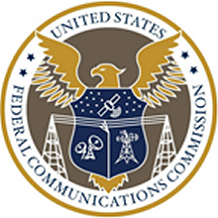Advertisement
|
FCC Proposes to Further Strenghten Emergency Alerting
| RADIO ONLINE | Thursday, March 18, 2021 | 11:59am CT |





|
 |
The Federal Communications Commission has proposed rules to improve the way the public receives emergency alerts on their radios, mobile phones and televisions. The move comes as a false emergency alert was issued in Hawaii back in 2018 that mistakenly warned of an incoming ballistic missile and highlighted the need to improve these systems.
The National Defense Authorization Act for Fiscal Year 2021 subsequently charged the Commission with adopting rules to strengthen emergency alerting in various areas. Under this directive, the agency adopted a Notice Proposed Rulemaking to ensure that more people receive relevant emergency alerts, enable government agencies to report false alerts when they occur and improve the way states plan for emergency alerts.
Specifically, the Commission proposed to:
- Combine the current "Presidential Alerts" category, which is non-optional on devices that receive Wireless Emergency Alerts, with alerts from the FEMA Administrator. The new non-optional alert class would be called "National Alerts."
- Encourage all states to form State Emergency Communications Committees, which help administer alerting on the state level, or to review the composition and governance of existing committees, as well as require these committees to certify that they held a meeting in the past year.
- Provide a checklist of information that should be included in annual submissions of state Emergency Alert System plans and amend the process for Commission review of those plans.
- Specify that government agencies may report false emergency alerts to the FCC's 24/7 Operations Center.
- Require and ensure that Emergency Alert System participants can repeat certain alerts over television and radio when the government alert originator requests it.
Also under the new legislation, the Commission adopted a Notice of Inquiry to explore the technical feasibility delivering Emergency Alert System alerts through the Internet, including streaming services and whether it is feasible for Emergency Alert System participants to leverage the Internet to offer advanced alerting capabilities to the public.
Advertisement
|
Latest Radio Stories
ACM Announces 2025 Radio Award Nominations
|
iHeartMedia Q4 Revenue Up, Podcast Growth Continues
|
Dan Brady Upped to VP/GM at Take On The Day
|
Advertisement
|
Country Fresh Radio Launches Syndicated Show
|
Audacy Creator Lab Adds YouTube Integration
|
Study: Audio Drives Record Auto Ad Spending
|

















